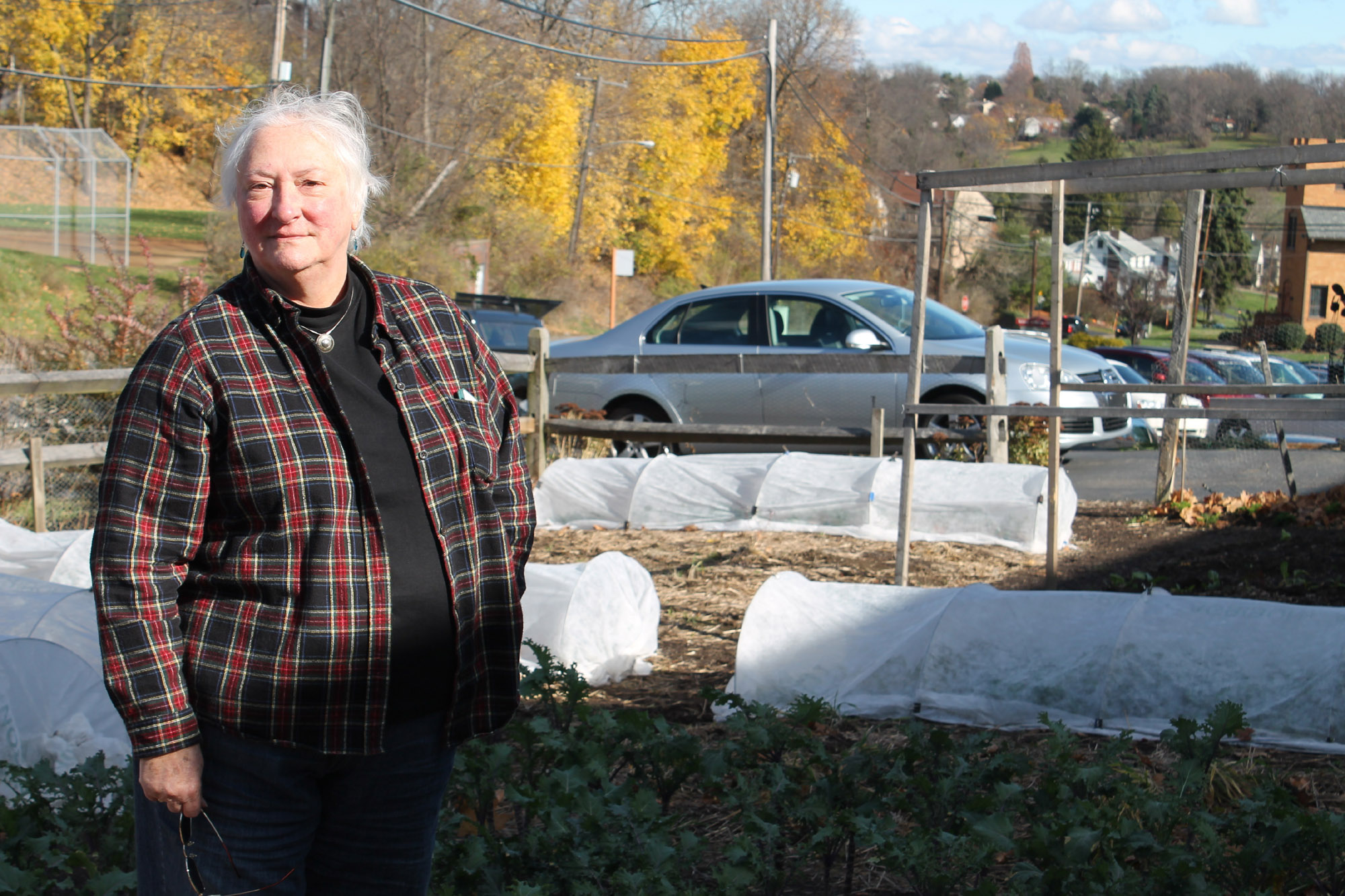At a food pantry in Pittsburgh’s South Hills, people are choosing canned goods from the shelves. Others stand at the produce table. There are leafy greens and a box full of festive acorn squashes with speckled orange and green skin. It looks beautiful, like shopping at the local farm market. And workers at the food pantry have noticed a big difference in the produce.
“This summer, everything was fresh, and it’s organically grown,” says one worker. “They don’t use any chemicals. We had tomatoes, we had peppers.”
Pat Eagon, who helps grow some of the produce, wants to know, in particular, how people are responding to the hot peppers. Some refugees from other countries who are new to the area were asking for special items like amazingly hot peppers.
“I bit into one just to see how hot it was and I couldn’t catch my breath,” Eagon says.
LISTEN: “Gardening for God”
Eagon’s day job is teaching nutrition at the University of Pittsburgh College of Medicine, but she grew up around farming and gardening.
Her church, St. Paul’s Episcopal in Mt. Lebanon, had always collected canned goods for the food pantry. But Eagon and others there decided they wanted to provide something more—that they were called to do better for people.
“God asks us to help our fellow man. Matthew says, ‘Whatever you do for the least of mine, you do for me.’”
And she has done a lot. After just a few years, she and other volunteers now run nine gardens around Pittsburgh, including one right next door to this pantry.
“This past growing season, we contributed over 15,000 pounds of fresh produce to the food pantry. So it’s been a real success.”
And it’s not just helping the people they’re feeding. It means something to Eagon and her fellow gardeners too.
“When you’re out there and the sun is shining on your back, and you have community activity, you’re getting to know each other in the garden. It’s just a wonderfully meditative activity.”
Garrett Yates is Associate Pastor at St. Paul’s. He says caring for the earth is part of the church’s mission.
He was overjoyed when Pope Francis spoke about the moral imperative of climate change. At the Episcopal church in Mt. Lebanon, they’ve started recycling, they try to use less styrofoam, and they’ve changed to LED light bulbs to reduce their use of resources and take better care of the earth.
“The environment, the climate, is an integral part of what it means to follow Jesus,” he says.
Yates also wants that to come through in sermons and church teachings. Yates says the gardens are a good example of how church followers can live out these teachings of caring for people and the earth.
He’s watched Pat Eagon and other gardeners spend hours with their hands in the dirt—planting, weeding and harvesting vegetables.
“Time is the most valuable thing that we have,” Yates says. “And if we spend our time in a garden for the sake of the poor, we’re honoring God. We don’t give canned goods to the poor. We say, You are worth our best. You’re worth the freshest.”
As she walks out of the food pantry, Pat Eagon says by taking care of the earth and using it to help other people, she’s living her faith.
“It’s amazing. I just love to see those vegetables we picked go into other people’s hands,” she says. “[It] brings back to me why we do this. That we are to help our neighbors, and this is a great way to do it, to help them be healthy.”



